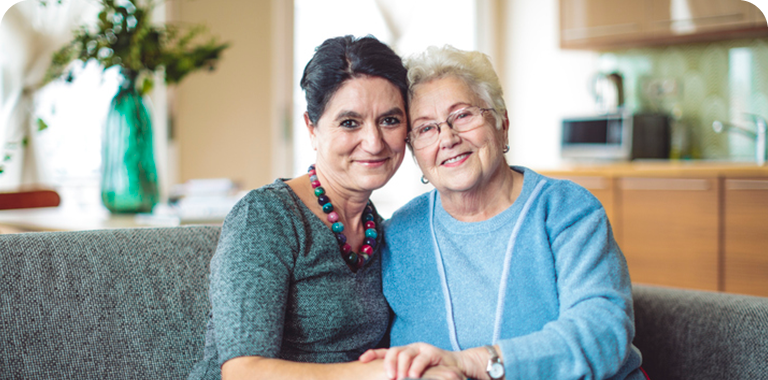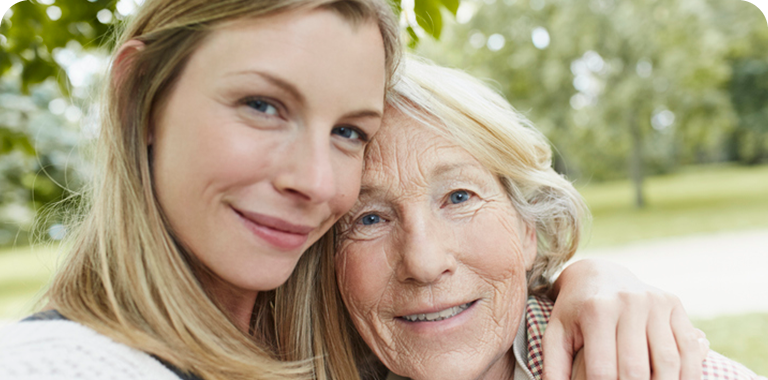

Case Study
Enza
Enza was 46 years old when she became the sole caregiver for her mother after she was diagnosed with dysphagia. The diagnosis was a difficult journey for them both, but Enza was determined not to let her mother’s condition get the best of her.
I became my mother’s caregiver three years ago at the age of 46 years old, when my mother was diagnosed with dysphagia.
At first the diagnosis left her feeling defeated. I had been involved since the very beginning stages of her diagnosis, but when I saw how much this diagnosis was affecting her, I knew I had to step up and become her support system. I was extremely nervous and felt completely unprepared to take on the role of her caregiver, but my mother’s health and well-being meant too much to me to not try. First, I reassured her that she could stay healthy if we managed her condition together. I then spent time learning and reading materials on dysphagia so that I could learn how to navigate this new lifestyle change.
After her diagnosis, we were told that an occupational therapist, a speech pathologist, and a dietitian would be in touch which they were a few weeks later. However, even after I met with the healthcare professionals, I still felt that my knowledge was lacking due to the very limited amount of information provided.
The more I learned, the less nervous I became, and I knew I could be the caregiver my mother needed.
Helping my mother
Currently, my mother can eat and drink by herself, but I always keep a watchful eye on her and ensure all her meals and drinks are of the right consistency. This means I always serve food that has been puréed or thickened so she can eat and drink safely.
Some of my favourite dysphagia-friendly meals to make include chilled beet and orange soup, mashed sweet potatoes, creamy puréed minestrone soup, and mango smoothie.
As well as finding eating and drinking difficult, dysphagia also presented other challenges when caring for my mom. After her diagnosis, she experienced depression and embarrassment, and trying to support her emotionally as well as physically was a challenge.
I did my best to encourage her and let her share her fears, anxieties, and stresses whenever I was with her so she could learn to adapt to her new way of life. Knowing that we were navigating this journey together helped her accept her diagnosis.
My mom felt a lot of shame and embarrassment when she was first diagnosed and wanted to avoid social settings. Finding a way to include her without excluding her was important to her accepting her diagnosis.
Creating appealing meals that my mom could eat without feeling deprived of the foods she used to enjoy was also a big challenge. It took a lot of trial and error to create delicious meals that she could enjoy, and I spent some time researching recipes and recreating them to overcome this challenge.
What I’ve learnt caring for someone with dysphagia
Looking back on my mother’s journey with dysphagia and my own path becoming a caregiver, I feel the information provided was very limited and not as informative as it could have been. I also felt alone during that time and wish I could have had access to support groups.
Because of how uninformed I felt at the beginning of my mother’s diagnosis, I want to share some of my tips and tricks that were very helpful for supporting someone with dysphagia.
The number one thing to keep in mind is patience. I always try to be supportive and inclusive of my mom so that she doesn’t feel isolated from the rest of the family. When looking for dysphagia-friendly recipes, I try to find something the whole family can enjoy, so she feels less awkward or embarrassed when we all eat together.
Living well with dysphagia is possible—my mom is proof of that—but none of that would be possible without an adapted diet or the care and support from those around her.



